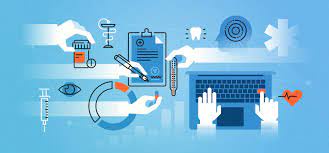In the healthcare, medical coding plays the critical role of translating the complexities of diagnoses and procedures into a standardized language. It's not just about numbers and codes; it's about precision, accuracy, and the very foundation on which reimbursement, data analysis, and clear communication within the healthcare system rest. Mastering medical coding skills unlocks a rewarding career path and empowers you to become a vital instrument in ensuring smooth healthcare delivery.
Why are Medical Coding Skills So Important?
Imagine a world where medical records were a cacophony of inharmonious terms, diagnoses coded inconsistently, and procedures shrouded in cryptic descriptions. The ramifications would be disastrous:
- Financial Chaos:Reimbursement claims would be mismatched, leading to denials and delayed payments, jeopardizing the financial stability of healthcare institutions.
- Clinical Miscommunication:Inaccurate or unclear coding could lead to misdiagnosis, inappropriate treatment, and compromised patient care.
- Research Impediments:Analyzing healthcare data for trends and insights would be impossible, hindering advancements in treatment methodologies and public health initiatives.
This is precisely why skilled medical coders are in high demand. Their expertise ensures:
- Accurate Reimbursement:Precise coding guarantees healthcare providers receive rightful compensation for their services, enabling them to continue delivering quality care.
- Clear Documentation:Standardized codes create a universal language for medical records, promoting effective communication between healthcare professionals and accurate patient histories.
- Data-Driven Insights:The vast amount of data encoded by medical professionals informs research, identifies disease patterns, and drives innovations in healthcare practices.
Essential Skills for Mastering the Medical Coding Symphony:
Becoming a skilled medical coder requires a unique orchestra of skills. Here are some key instruments you'll need to tune:
- Acute Attention to Detail:A single misplaced number or abbreviation can have significant consequences. Meticulous accuracy is paramount.
- Medical Terminology Mastery:Understanding medical terms, abbreviations, and anatomical descriptions is crucial for deciphering medical records and assigning the right codes.
- Coding Systems Expertise:Mastering the intricacies of multiple coding systems like ICD-10-CM, CPT, and HCPCS is essential for accurate medical coding.
- Analytical Thinking:The ability to analyze complex medical records, identify relevant diagnoses and procedures, and apply the correct codes is key.
- Problem-Solving Prowess:Navigating coding discrepancies, resolving insurance billing issues, and adapting to evolving regulations require critical thinking and resourcefulness.
- Clear Communication: Effective communication with healthcare providers, billing specialists, and insurance companies is vital for resolving queries and ensuring accurate coding.
The Basics: Tuning Your Skills for Career Harmony
While the core skills listed above are foundational, additional qualities can truly make your medical coding skills sing:
- Continuous Learning:Healthcare regulations and coding systems constantly evolve. Committing to lifelong learning and adapting to these changes are crucial for long-term success.
- Technology Savvy:Familiarity with electronic health records (EHR) systems and medical coding software is increasingly important in today's digital healthcare landscape.
- Organizational Finesse:Managing large volumes of patient records, adhering to deadlines, and maintaining meticulous documentation necessitate strong organizational skills.
- Teamwork Spirit:Medical coders often collaborate with healthcare providers, billing specialists, and insurance companies. Effective teamwork is essential for a smooth workflow and optimal patient care.
The Pathway to Proficiency: Cultivating Your Medical Coding Skills
The good news is that anyone with dedication and the right resources can cultivate their medical coding skills. Here are some avenues to explore:
- Formal Education: Numerous certificate programs, associate degrees, and even bachelor's degrees in medical coding are available, providing a comprehensive foundation in theory and practical application.
- Online Courses:Several online platforms offer flexible and convenient courses ranging from beginner to advanced levels, catering to various learning styles and schedules.
- AAPC Certification:Earning a certification like Certified Professional Coder (CPC) from the American Academy of Professional Coders (AAPC) validates your skills, enhances your marketability, and sets you apart in the competitive job market.
- On-the-Job Training:Some healthcare institutions offer on-the-job training programs, allowing you to learn while gaining practical experience under the guidance of experienced professionals.
The Fulfilment: A Career Awaits Your Medical Coding Skills
With a well-tuned set of medical coding skills, you can unlock doors to a fulfilling and well-paying career options after bpharm. Opportunities abound in hospitals, clinics, physician offices, insurance companies, and healthcare consulting firms. As the demand for skilled coders continues to rise, your expertise will be highly valued in the ever-evolving healthcare landscape.


No comments yet